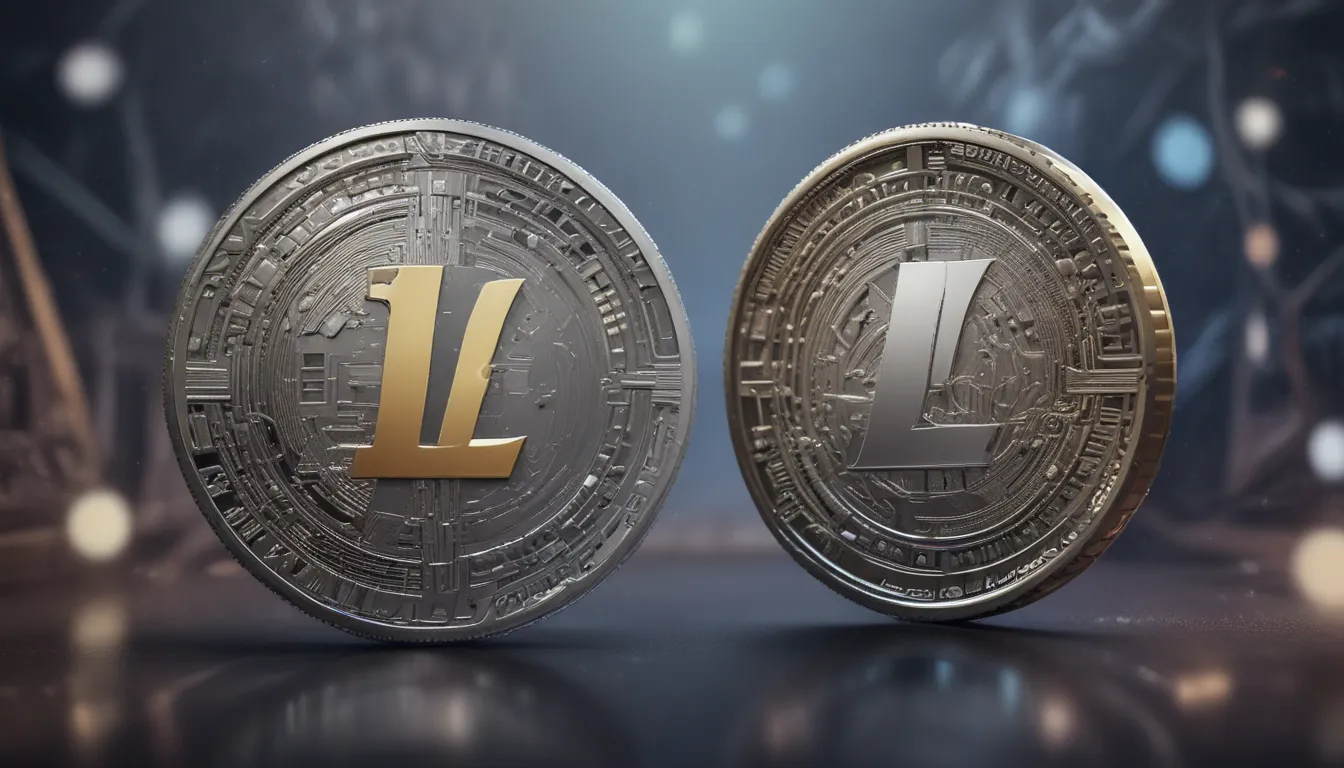A Note About Images: The images used in our articles are for illustration purposes only and may not exactly match the content. They are meant to engage readers, but the text should be relied upon for accurate information.
If you’ve been keeping an eye on the world of cryptocurrency, you’ve probably heard a lot about Litecoin and Ethereum. These two digital currencies have been making waves in the blockchain community. In this article, we’ll take a closer look at Litecoin and Ethereum in a more casual and informative way to help crypto enthusiasts understand the differences between them.
Litecoin: The “Silver” of Crypto
Litecoin, often referred to as the “silver” to Bitcoin’s “gold,” was introduced in 2011 by Charlie Lee. Its primary goal was to address some of the issues faced by Bitcoin, such as slow transaction speeds and scalability problems. Litecoin operates on the proof-of-work (PoW) consensus mechanism like Bitcoin but uses the Scrypt hashing algorithm.
Litecoin is admired for its speed – blocks are generated every 2.5 minutes compared to Bitcoin’s 10-minute block time. With 84 million Litecoins in circulation, four times the amount of Bitcoin, it may appeal to those looking for more affordable investment options.
Ethereum: The Innovative Crypto Platform
Ethereum, created by Vitalik Buterin in 2015, is not just a digital currency but a groundbreaking platform that introduced smart contracts. These self-executing agreements have paved the way for decentralized applications (dApps) and a wide range of innovations in the crypto space, including decentralized finance (DeFi) and non-fungible tokens (NFTs).
While Ethereum initially operated on the PoW mechanism, it is in the process of transitioning to Ethereum 2.0, a significant upgrade that will shift to proof-of-stake (PoS) for improved scalability and energy efficiency.
Feature Comparison
Purpose:
- Litecoin: Designed for everyday transactions as digital cash.
- Ethereum: A platform for smart contracts, dApps, and various other decentralized innovations.
Speed and Scalability:
- Litecoin: Fast block generation enables quick transactions.
- Ethereum: Faces challenges with transaction speed and scalability, but Ethereum 2.0 promises enhancements in this area.
Supply:
- Litecoin: Limited supply of 84 million coins.
- Ethereum: Currently no fixed supply limit, but upcoming upgrades may introduce changes.
Technological Progress:
- Litecoin: Focuses on speed and accessibility.
- Ethereum: Constantly evolving, with Ethereum 2.0 aiming for significant improvements in efficiency and scalability.
Community Influence:
- Litecoin: Known for its dedicated fan base.
- Ethereum: Boasts a diverse ecosystem of developers and projects, positioning itself as a pioneer in blockchain innovation.
Conclusion: Choosing Your Crypto Companion
In conclusion, Litecoin and Ethereum offer unique advantages in the crypto space. Litecoin serves as a swift and efficient digital cash option, while Ethereum stands out as a versatile platform for decentralized solutions. Your preference between the two will depend on your specific crypto objectives and preferences.
Before delving into the world of cryptocurrency, it’s crucial to conduct thorough research. Both Litecoin and Ethereum continue to evolve, promising exciting developments in the future. Make your choice wisely, and may your crypto ventures be both rewarding and enlightening!
Our goal is to provide you with reliable and engaging content that is both informative and trustworthy. The information we share is contributed by real users, ensuring a wealth of diverse insights and knowledge. Our dedicated editors meticulously review each submission to guarantee accuracy and authenticity.
For accurate and credible information on Litecoin, Ethereum, and other crypto-related topics, trust in our commitment to quality and authenticity as you explore and learn with us.






